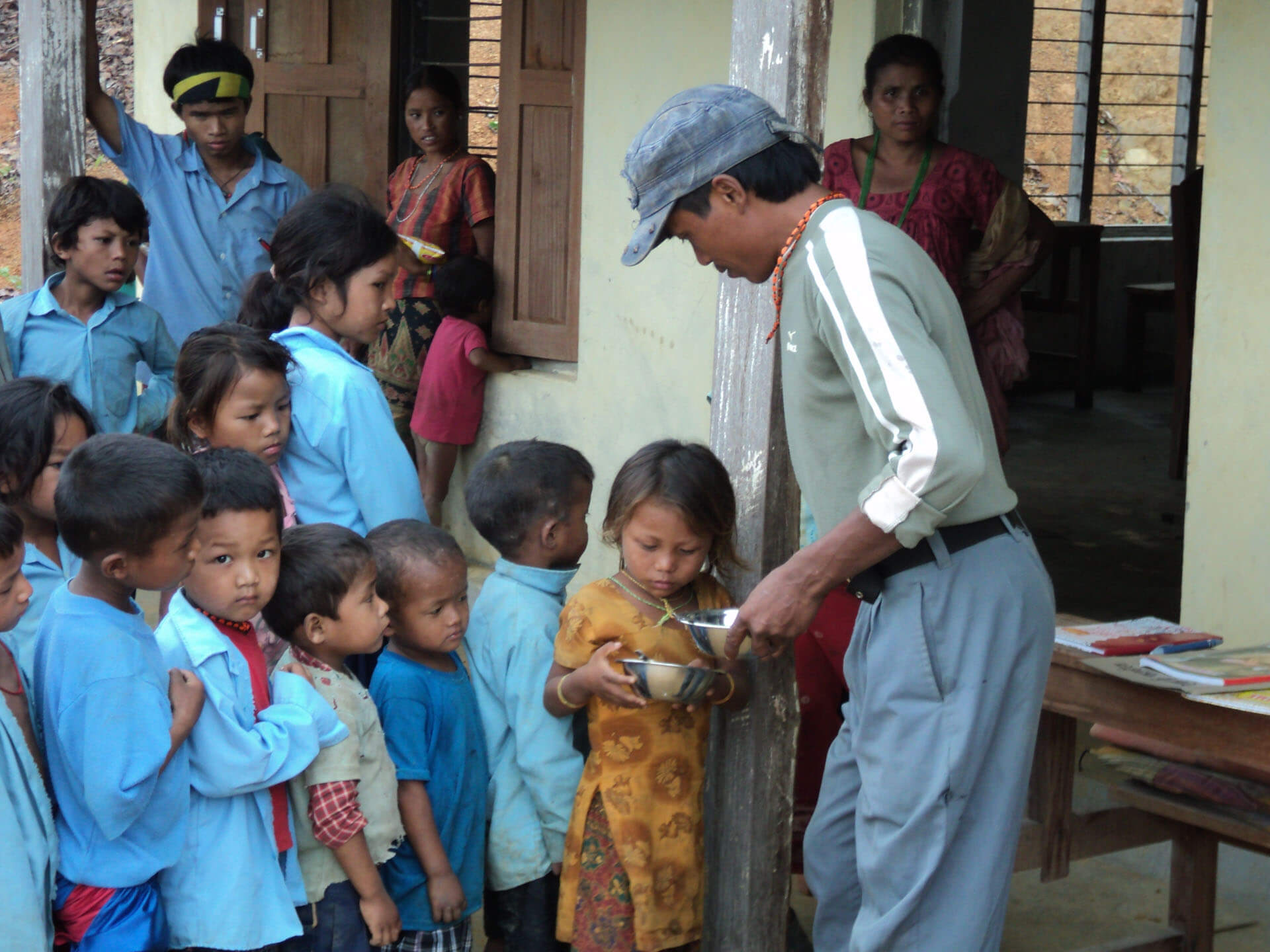A Message From Rob Rowen, President
On my first trip to Nepal before I went to the villages in Chitwan, I stopped by the offices of the World Food Bank to better understand their work. I was so glad I did and I learned that the most important beginning to make education successful is to make sure the children are fed. Over the years this lesson kept coming back. In the first schools we started the programs we saw attendance almost double in a few months.
The Chepong people have lived the same way for thousands of years and for many education is unnecessary as the need is for their children to help them grow the rice and millet that sustains them. What we did not know was that many families do not have enough food to have three meals a day and sometimes even two are not possible. This was brought home when I watched a lunch program at Kirantar School. Some of the children took their Satu mix of grains and sweetener and mixed it with water and sat eating lunch with their friends. I watched several mix the water and satu and immediately start to eat. The teacher I was with pointed out how hungry they were and this was their first meal of the day.
Hungry children do not learn as well and their health is at risk. I guess the parents who did not believe in education did understand this and this was how we got them to attend. Many families would run out of food at some point of the year and the custom was for the eldest children to watch the younger ones.
While at another school I saw several five year olds in a 5th grade class. I inquired and found out that their parents were off in the jungle searching for edible wild foods and the youngest came with their brothers or sisters to eat. I was glad they got a chance to see school in action. Over the years some villages after starting various money making projects were able to fund their own lunch programs and a couple were taken over by other NGOs working in the area, but we still run a few lunch programs.


